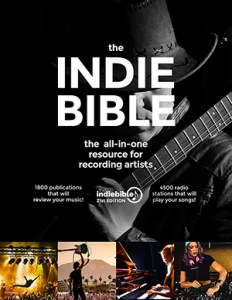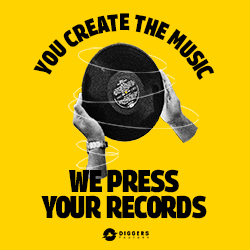College Radio 101
REACH OUT TO US
Radio stations are as diverse as the people who run and listen to them. Some use traditional broadcasting methods; others utilize the internet. Some spend thousands of dollars and play major label acts exclusively; others broadcast obscure B-sides out of dark basements on no budget at all. There’s a wide spectrum of radio to explore, and somewhere between platinum albums and the stations with two or three listeners, college radio has become a favorite stomping ground for music junkies and music makers alike. So what makes college radio stand out? Read our guide to college radio 101 to find out.
College Radio VS. Commercial Stations
While radio stations come in all shapes and sizes, they can basically be herded into one of two broad categories: commercial radio, and non-commercial radio. As the name implies, the basic difference between the two is that commercial radio is heavy on ads, whereas non-commercial radio either keeps their ads to a minimum, or doesn’t run any at all. College radio falls into the latter group. So why is that important?
Commercial radio is a very tough world to break into, because it’s so fiercely driven by the need to make money. Commercial stations derive the bulk of their profits from running advertisements. Advertisers know that commercial stations reach a vast audience of listeners, so it’s a profitable exchange for them to pay stations to feature ads for their products. Because of this station-advertiser relationship, commercial radio simply doesn’t have the leeway to “take a chance” on unknown artists, offbeat artists, or artists that don’t fit into the format a station is known and loved for consistently providing. Since they’re desperately dependent on maintaining good ratings and large audiences, commercial stations can’t rock the musical boat.
College radio, however, is a different story…
Image from www.democracyforthecartoons.blogspot.comWhat Makes College Radio Great for New Musicians?
We’ve established that college radio is a different animal than commercial radio. But why is college radio in particular such a good home for emerging musicians?
College radio stations generally do not run advertisements. In fact, if a college station has non-commercial status, they are legally prohibited from advertising. That means that advertisements do not steer programming. College radio has the liberty to play the kind of genre-bending, shoestring-budget, or even totally unknown acts that commercial radio is forced to shy away from due to financial pressure.
It all adds up to one fact that’s crucially important for musicians to be aware of: college radio is the perfect starting point to get that first foot in the airplay door.
Image from www.iTunes.apple.com
How Does College Radio Work?
Typically, a college or university’s radio station is staffed and run by students, often with assistance from professors and sometimes members of the local community. Depending on the size and budget of a school’s media department, and even the population density in the school’s geographic area, college radio stations range in scope from being manned by just a few people, to being well-known, comprehensive operations. According to the 2014 Princeton Review, some of the most popular college stations in America include WICB 91.7 FM (Ithaca College), WGRE 91.5 FM (DePauw University), WERS 88.9 FM (Emerson College), and WSBU 88.3 FM (St. Bonaventure University). Other major players include KCRW 89.9 (Santa Monica College) and KEXP 90.3 (University of Washington).
College radio stations are staffed by primarily by students, and volunteers from the community. Why does this matter? At a commercial radio station, the DJ may play the music — but, contrary to popular belief, they don’t actually select the music they spin. At a college radio station, on the other hand, the DJs do have control over their own playlists; and because numerous DJs are on constant rotation (most college blocks are only an hour in length), there are plenty of diverse opportunities for a musician to catch a college station’s eye. Even if one DJ doesn’t like your sound, the next hour’s DJ might love it.
College Radio and Music Genres
Affiliation with a genre is both a blessing and a curse when it comes to marketing your sound. On one hand, having a genre label can help you describe your sound and find fans. On the other hand, while a genre may include you in some music communities, it can exclude you from others. (For example, if you’re part of a metal band, you’ll never have a chance to be booked at an electronic club.) Then, if you don’t have a genre, many commercial stations will treat you with trepidation because they have no way to classify and sell you.
College radio is beloved for just this reason. If you’re tired of being left off of playlists because you’re part of an unconventional genre — or because you don’t give yourself a genre at all — there’s good news: college radio is largely genre-less. Oftentimes, a single eclectic program will bounce from folk to jazz to electronic, or play music that doesn’t fit neatly into the confines of one genre. Since college radio typically caters to a younger, edgier audience than commercial radio, there are fewer “rules” when it comes to fitting in.
College Radio Pros and Cons
Like anything, college radio comes with its pros and cons.
The main con of college radio is that sometimes, the audience can be somewhat limited. If the station is affiliated with a small school, or a school with a focus on engineering or medicine, it may reach fewer ears than a station that’s part of a major urban university or which has a robust media department. Even so, plenty of college stations have thousands of listeners. Ithaca’s station, WICB, has almost 250,000 listeners — that’s a quarter of a million — while WHRU at Hofstra boasts an impressive 80,000 weekly listeners.
While college radio may have its limitations, the pros outweigh the cons. Benefits of college radio for musicians include programming flexibility, numerous opportunities to be selected for airplay by a DJ, and a willingness to accept new and offbeat artists who aren’t already fueled by massive budgets and fan-bases.
The bottom line is that, unhindered by the needs of advertisers, college radio offers flexible programming while still reaching large audiences, which makes it a perfect home for acts who are trying to break out.


